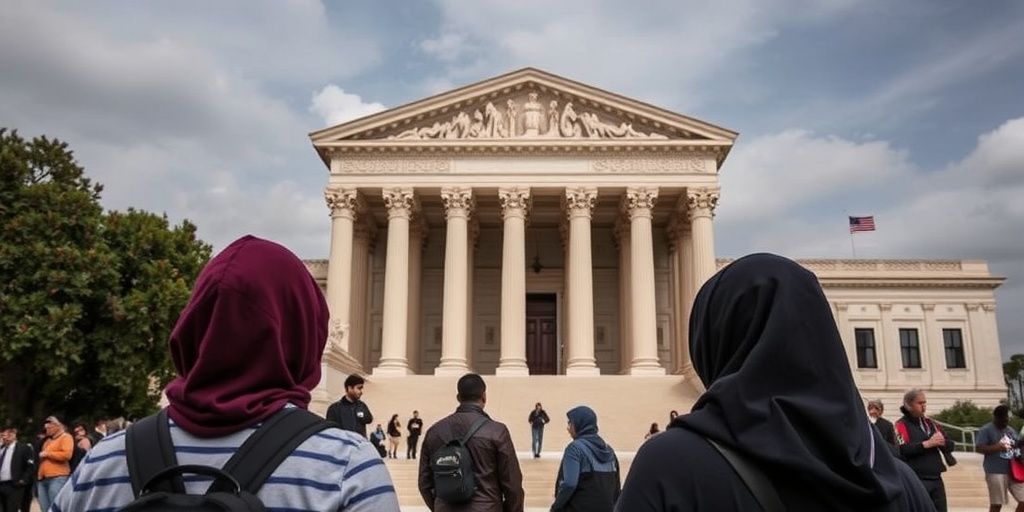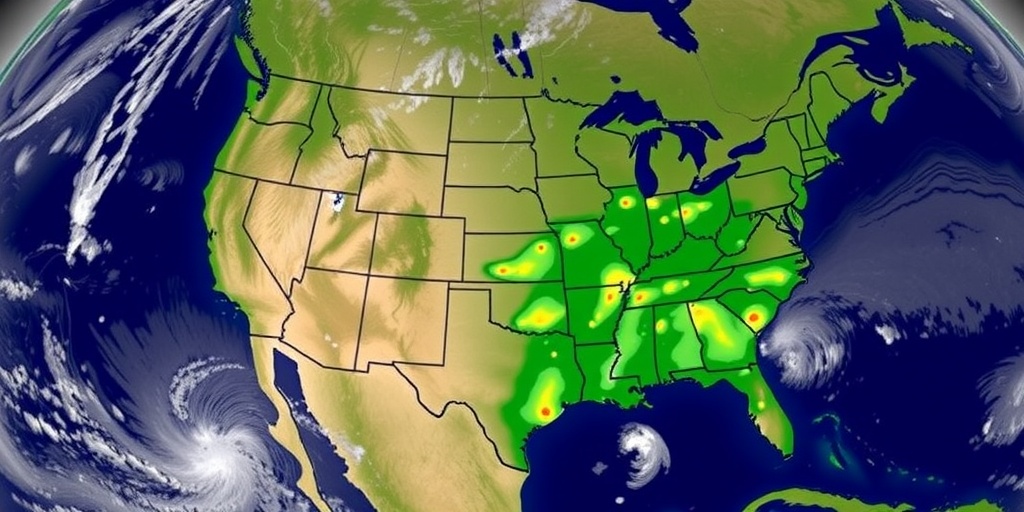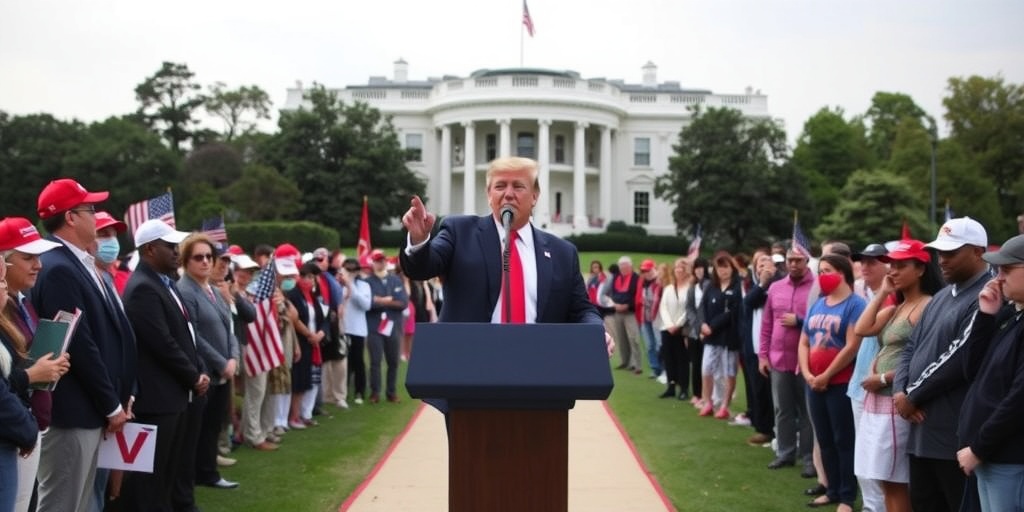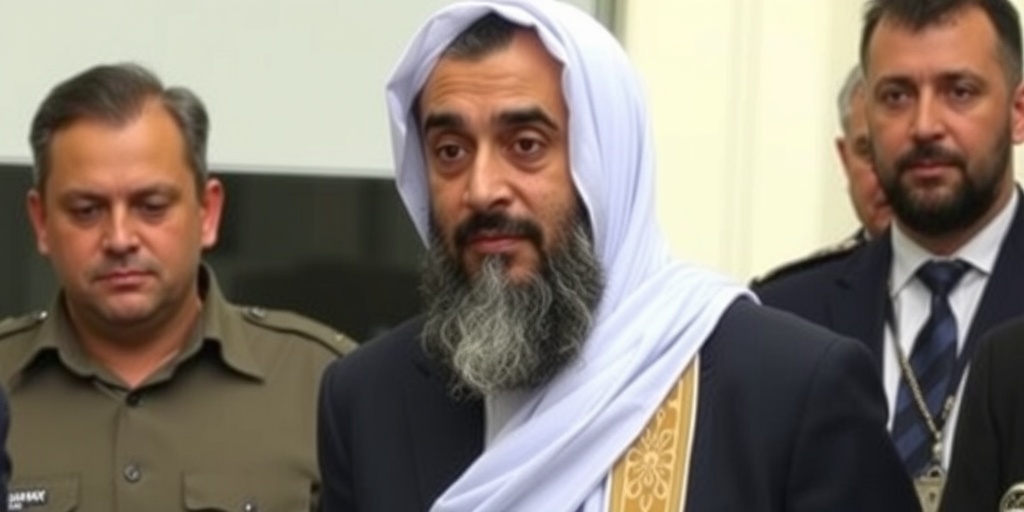Now Reading: Venezuelan Migrants Seek Supreme Court Protection from Deportation
-
01
Venezuelan Migrants Seek Supreme Court Protection from Deportation
Venezuelan Migrants Seek Supreme Court Protection from Deportation

Supreme Court Faces Legal Battle Over Deportation of Venezuelan Migrants to El Salvador
On Tuesday, lawyers representing Venezuelan migrants, who are accused of affiliations with a notorious street gang, urged the U.S. Supreme Court to uphold a temporary order that blocks the Trump administration from invoking wartime powers to deport hundreds of individuals to a prison in El Salvador. This request comes as the administration has sought intervention from the justices to overturn a lower court’s restriction on these deportations.
In a brief submitted to the Supreme Court by the American Civil Liberties Union (ACLU) and Democracy Forward, the lawyers argued that the current injunction is the sole barrier preventing the administration from forcibly sending these migrants to El Salvador, where they could "perhaps never be seen again" without any procedural safeguards or the possibility of judicial review. The situation has raised serious concerns regarding human rights, as the court filing details how more than 130 Venezuelan men have already been sent to a prison in El Salvador. According to reports, this facility is known for its brutality and pervasive human rights violations, including instances of torture.
The legal dispute surrounding the deportation of these Venezuelan migrants represents one of the first significant challenges to President Trump’s series of executive actions, marking a critical intersection between the judicial system and the executive branch. This case is among eight emergency applications brought forth by the administration that are currently pending before the high court.
Typically, cases that find their way to the Supreme Court’s emergency docket do not involve public hearings or oral arguments, and there is no predetermined timeline for when a decision will be issued. The 514-page legal filing presented to the court included various documents from the lower courts, as well as expert declarations related to human rights, showcasing the ongoing concern regarding the treatment of these migrants.
The crux of the dispute involves the Trump administration’s request made on March 28 to reverse a ruling from Judge James E. Boasberg of the Federal District Court in Washington, which temporarily halted deportations based on the Alien Enemies Act of 1798. This law grants the president broad authority to expel citizens of foreign nations who are designated as “alien enemies” during times of war or invasion.
In its application to the justices, the administration contended that the president’s use of the Alien Enemies Act was justified, asserting that thousands of gang members had illegally entered the U.S. as part of a scheme orchestrated by the Venezuelan government aimed at destabilizing democracies.
However, lawyers for the Venezuelan migrants vehemently disputed this interpretation, arguing that it represents a misguided application of the law. They described Trump’s rationale as an “effort to shoehorn a criminal gang” into a legal framework designed for wartime, which they claim undermines the limited authority that Congress intended to provide under such a statute.
In recent weeks, the Trump administration proceeded to order the deportation of over 100 individuals alleged to be linked to the gang, known as Tren de Aragua, which has roots in Venezuela’s Aragua state. These deportees have reportedly been denied any meaningful due process to contest the accusations leveled against them.
In their court submission, the attorneys for the Venezuelans contended that maintaining Judge Boasberg’s temporary block would not compromise public safety. They emphasized that the judge had not mandated the release of any individuals nor obstructed the government’s ability to deport migrants through regular legal channels.
Additionally, they pointed to a March 31 social media post from Secretary of State Marco Rubio, indicating that the U.S. military had recently deported another 17 individuals, some purportedly affiliated with Tren de Aragua, to El Salvador. The Trump administration clarified that these deportations followed standard immigration laws, distinct from actions taken under the Alien Enemies Act.
Lawyers representing the migrants expressed profound concerns regarding the potential fallout if the Supreme Court were to lift the block on deportations. They warned that such a ruling could result in “extraordinary and irreparable harms,” as these individuals would face expulsion to a notorious prison in El Salvador, where they would likely experience isolation, potentially for the remainder of their lives, without having been given a fair chance to contest their gang affiliation designations.
As the legal battle unfolds, the implications of this case may reverberate far beyond the immediate fate of these Venezuelan migrants, posing vital questions about executive authority, immigration policy, and the rights of individuals in the United States. The outcome in the Supreme Court is awaited with high stakes for those involved and could set important precedents for future situations of similar nature.
Stay Informed With the Latest & Most Important News
Previous Post
Next Post
-
 01New technology breakthrough has everyone talking right now
01New technology breakthrough has everyone talking right now -
 02Unbelievable life hack everyone needs to try today
02Unbelievable life hack everyone needs to try today -
 03Fascinating discovery found buried deep beneath the ocean
03Fascinating discovery found buried deep beneath the ocean -
 04Man invents genius device that solves everyday problems
04Man invents genius device that solves everyday problems -
 05Shocking discovery that changes what we know forever
05Shocking discovery that changes what we know forever -
 06Internet goes wild over celebrity’s unexpected fashion choice
06Internet goes wild over celebrity’s unexpected fashion choice -
 07Rare animal sighting stuns scientists and wildlife lovers
07Rare animal sighting stuns scientists and wildlife lovers





















